August 3 stands as one of history’s most eventful days, witnessing the rise and fall of empires, groundbreaking discoveries, and moments that shaped our modern world across centuries of human achievement.
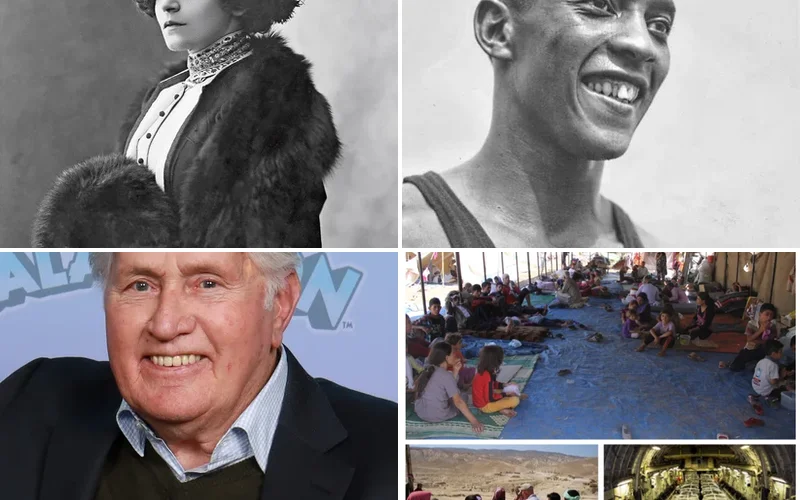
Politics and Government Events on August 3
1914 – Germany Declares War Against France
Germany’s declaration of war against France marked a pivotal escalation in World War I. The declaration came as part of the Schlieffen Plan’s implementation, forcing Europe into total war.
Romania simultaneously declared its neutrality, attempting to avoid the continental conflict. This moment transformed a regional crisis into the devastating global war that would reshape the 20th century.
1960 – Niger Gains Independence from France
Niger achieved its independence from French colonial rule on this historic date. The West African nation joined the growing number of former colonies breaking free from European control.
The independence marked the end of decades of French administrative control over the region. Niger’s transition to self-governance represented a significant milestone in African decolonization movements.
1975 – United States Senate Ratifies Anti-Ballistic Missile Treaty
The U.S. Senate officially ratified the groundbreaking Anti-Ballistic Missile Treaty with the Soviet Union. This landmark agreement limited defensive missile systems to prevent arms race escalation.
The treaty represented a crucial step toward nuclear weapons control during the Cold War. Both superpowers recognized the importance of maintaining strategic balance through diplomatic agreements.
2005 – Mauritanian President Overthrown in Military Coup
President Maaouya Ould Sid’Ahmed Taya was overthrown while attending King Fahd’s funeral in Saudi Arabia. The military coup demonstrated the vulnerability of leaders during international travel.
The timing of the coup during the president’s absence highlighted strategic planning by military conspirators. This event marked another chapter in Mauritania’s history of political instability.
2019 – Moscow Election Protest Results in 600 Arrests

Russian authorities arrested 600 protesters, including opposition leader Lyubov Sobol, during election demonstrations in Moscow. The massive arrests demonstrated the government’s crackdown on political dissent.
The protests challenged restrictions on opposition candidates in local elections. This event highlighted growing tensions between Russian authorities and democratic opposition movements.
Military and Naval History on August 3
1903 – Kruševo Republic Proclaimed by Macedonian Rebels
Macedonian rebels proclaimed the short-lived Kruševo Republic, which lasted only ten days before Ottoman forces destroyed it. This bold declaration represented local resistance against Ottoman rule.
The republic’s brief existence demonstrated the fierce desire for independence among Balkan peoples. Ottoman Turkish forces quickly suppressed the rebellion, laying waste to the town and crushing the revolutionary government.
1940 – Italy Begins Invasion of British Somaliland
Italian forces launched their invasion of British Somaliland, opening a new front in World War II. The campaign represented Mussolini’s attempt to expand Italian influence in East Africa.
The invasion forced British colonial administrators to evacuate the territory temporarily. This military action demonstrated Italy’s strategy of targeting British colonial possessions during the war.
1958 – USS Nautilus Completes First Submerged North Pole Transit
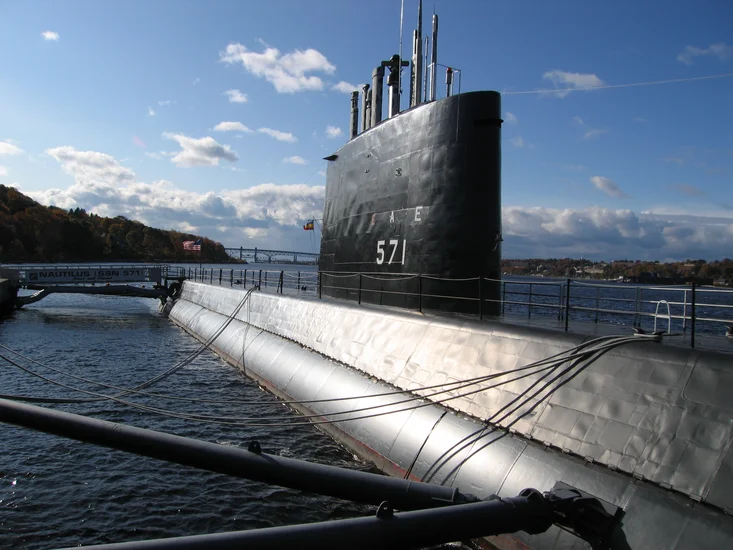
The USS Nautilus became the first vessel to complete a submerged transit of the geographical North Pole. This nuclear submarine achievement marked a revolutionary moment in naval history.
The successful polar transit demonstrated the strategic capabilities of nuclear-powered submarines. The Nautilus proved that underwater vessels could operate in previously inaccessible Arctic regions.
1959 – Portuguese Police Kill 50 Striking Workers in Guinea-Bissau

Portugal’s state police force PIDE opened fire on striking workers in Bissau, killing over 50 people. The massacre revealed the brutal methods used to suppress colonial resistance movements.
The shooting demonstrated escalating tensions between Portuguese authorities and independence movements. This tragic event became a rallying point for Guinea-Bissau’s liberation struggle against colonial rule.
Science and Discovery Milestones on August 3
1977 – Tandy Corporation Announces TRS-80 Personal Computer
Tandy Corporation announced the TRS-80, one of the world’s first mass-produced personal computers. This revolutionary machine brought computing power to ordinary consumers for the first time.
The TRS-80’s introduction marked a crucial milestone in the personal computer revolution. The affordable system competed directly with the Apple II and Commodore PET, establishing the foundation for home computing.
1975 – Boeing 707 Crashes Near Agadir, Morocco
A privately chartered Boeing 707 struck a mountain peak near Agadir, Morocco, killing all 188 passengers and crew. The crash highlighted the dangers of mountain terrain for aircraft navigation.
The accident prompted investigations into flight safety procedures in mountainous regions. This tragedy contributed to improved navigational systems and safety protocols for commercial aviation.
2014 – Magnitude 6.1 Earthquake Strikes Yunnan, China

A devastating 6.1 magnitude earthquake struck Yunnan Province, China, killing at least 617 people and injuring over 2,400. The powerful tremor destroyed thousands of buildings across the mountainous region.
The earthquake demonstrated the ongoing seismic risks in China’s southwestern provinces. Emergency response teams mobilized quickly to rescue survivors and provide humanitarian assistance to affected communities.
Cultural and Arts Events on August 3
1946 – Santa Claus Land Opens as World’s First Themed Amusement Park
Santa Claus Land opened in Santa Claus, Indiana, as the world’s first themed amusement park. The innovative concept focused entirely on Christmas themes and family entertainment.
The park’s success inspired the modern themed entertainment industry, including Disneyland. Santa Claus Land proved that specialized attractions could draw visitors from across the country to small towns.
1997 – Sky Tower Opens in Auckland, New Zealand
The Sky Tower in downtown Auckland opened after two-and-a-half years of construction. Standing as the tallest free-standing structure in the Southern Hemisphere, it transformed Auckland’s skyline.
The tower’s completion marked a significant achievement in New Zealand architecture and engineering. The structure became an iconic symbol of Auckland and a major tourist attraction.
2004 – Statue of Liberty Pedestal Reopens After 9/11 Closure
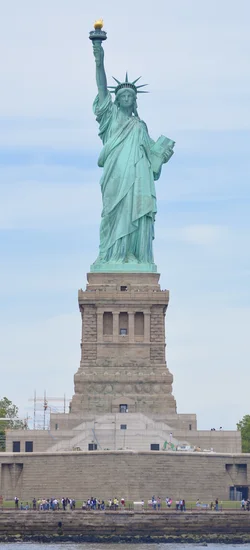
The Statue of Liberty’s pedestal reopened to visitors after being closed since the September 11 attacks. The reopening symbolized America’s resilience and commitment to freedom.
Security measures implemented during the closure remained in place to protect the national monument. The pedestal’s reopening allowed Americans to reconnect with this powerful symbol of liberty and democracy.
Religious and Social Events on August 3
1948 – Whittaker Chambers Accuses Alger Hiss of Communist Espionage
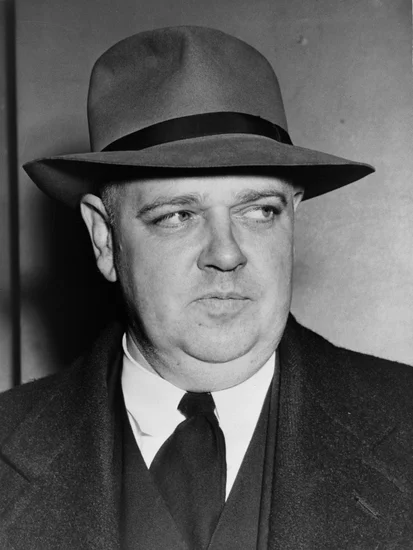
Whittaker Chambers publicly accused Alger Hiss of being a communist spy for the Soviet Union. The explosive accusation launched one of the most significant espionage cases in American history.
The allegations divided American public opinion and fueled Cold War paranoia. The Hiss case would dominate headlines for years and help establish Richard Nixon’s political reputation.
2014 – ISIL Begins Yazidi Genocide

The Islamic State of Iraq and the Levant began its systematic genocide against the Yazidi people. The terrorist organization’s actions constituted one of the 21st century’s most heinous crimes against humanity.
Thousands of Yazidi men were murdered while women and children were enslaved. The international community’s response highlighted the challenges of preventing genocide in conflict zones.
2010 – Karachi Riots Erupt After Politician’s Assassination
Widespread rioting erupted in Karachi, Pakistan, following a local politician’s assassination, leaving at least 85 dead. The violence caused approximately 17 billion Pakistani rupees in property damage.
The riots demonstrated the volatile nature of Pakistani urban politics. Ethnic and political tensions in Karachi regularly exploded into deadly confrontations affecting millions of residents.
Business and Economic Events on August 3
1907 – Judge Landis Fines Standard Oil Record $29.4 Million
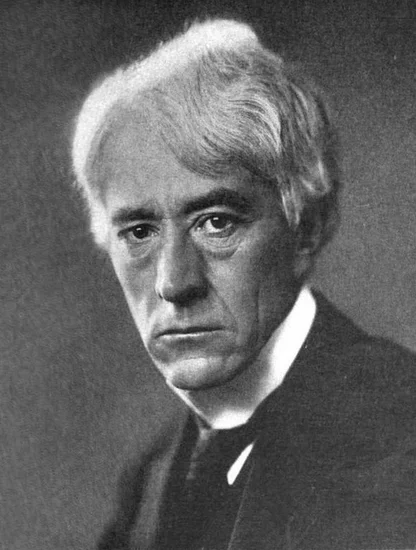
Judge Kenesaw Mountain Landis imposed a record $29.4 million fine on Standard Oil of Indiana for illegal rebating practices. The unprecedented penalty shocked the corporate world and demonstrated judicial willingness to challenge big business.
The conviction was later reversed on appeal, but the case highlighted growing public concern about corporate monopolies. Landis’s bold action contributed to the progressive movement’s campaign against business concentration.
1949 – Basketball Association of America and National Basketball League Merge
The Basketball Association of America and National Basketball League finalized their merger to create the National Basketball Association. This consolidation established professional basketball’s modern structure.
The merger eliminated competing leagues and created a unified professional basketball organization. The NBA’s formation provided stability for players, teams, and fans while establishing basketball as a major professional sport.
1936 – Devastating Fire Destroys Kursha-2, Russia
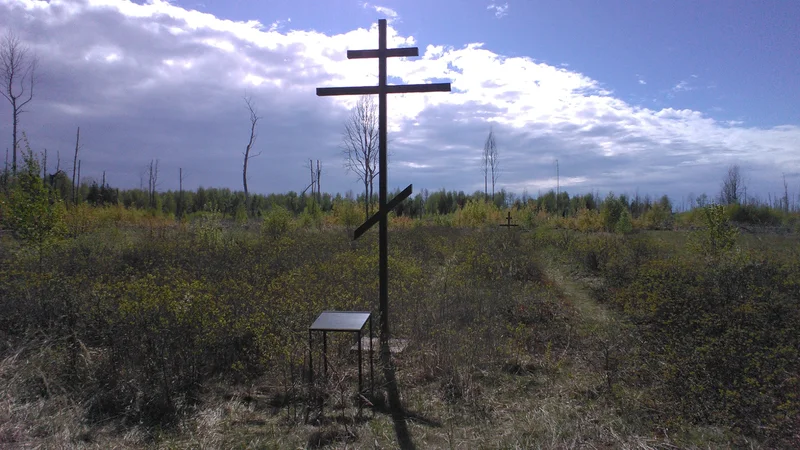
A massive fire completely destroyed the town of Kursha-2 in Russia’s Meshchera Lowlands, killing 1,200 people. Only 20 survivors escaped the conflagration that swept through the settlement.
The disaster highlighted the vulnerability of rural Russian communities to natural disasters. The tragedy prompted discussions about fire safety and emergency preparedness in remote areas.
Transportation and Infrastructure on August 3
1921 – Baseball Commissioner Bans Chicago Black Sox
Major League Baseball Commissioner Kenesaw Mountain Landis confirmed the permanent ban of eight Chicago Black Sox players. The decision came one day after their acquittal in criminal court.
The bans followed the 1919 World Series fixing scandal that threatened baseball’s integrity. Landis’s harsh punishment demonstrated professional sports’ commitment to maintaining competitive fairness and public trust.
2019 – El Paso Mass Shooting Kills 23 People

A gunman opened fire at a Walmart store in El Paso, Texas, killing 23 people and injuring 22 others. The attack targeted Hispanic shoppers in one of America’s deadliest mass shootings.
The shooter’s manifesto revealed anti-immigrant motivations behind the massacre. The tragedy sparked renewed debates about gun violence, domestic terrorism, and hate crimes in America.
2018 – Suicide Attack on Afghan Mosque Kills 29
Two burka-clad men conducted a suicide attack on a Shia mosque in eastern Afghanistan, killing 29 people. The bombing injured more than 80 worshippers during religious services.
The attack highlighted ongoing sectarian violence in Afghanistan’s conflict. Taliban and ISIS frequently targeted religious minorities, contributing to the country’s humanitarian crisis.
Sports and Recreation on August 3
1936 – Jesse Owens Wins 100-Meter Dash at Berlin Olympics
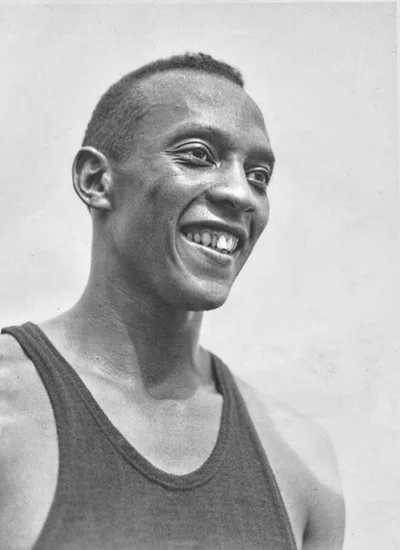
Jesse Owens won the 100-meter dash at the Berlin Olympics, defeating Ralph Metcalfe in a stunning victory. The African American athlete’s triumph challenged Nazi racial ideology on German soil.
Owens’s performance contradicted Hitler’s theories about Aryan racial superiority. The victory became one of the most significant moments in Olympic history, symbolizing athletic excellence over political hatred.
1997 – Oued El-Had and Mezouara Massacre in Algeria
Terrorists killed 116 villagers in coordinated attacks on Oued El-Had and Mezouara in Algeria. The massacres claimed 40 lives in Oued El-Had and 76 in Mezouara during the country’s civil war.
The attacks represented the extreme brutality of Algeria’s internal conflict during the 1990s. Civilian populations bore the brunt of violence between government forces and Islamic fundamentalist groups.
2007 – Chilean Secret Police Deputy Director Captured
Former Chilean secret police deputy director Raúl Iturriaga was captured after fleeing following his kidnapping conviction. The arrest marked progress in prosecuting Pinochet-era human rights violations.
Iturriaga’s capture demonstrated Chile’s commitment to judicial accountability for past atrocities. The case highlighted ongoing efforts to bring former security officials to justice decades after their crimes.
Notable Births on August 3
1904 – Habib Bourguiba Born
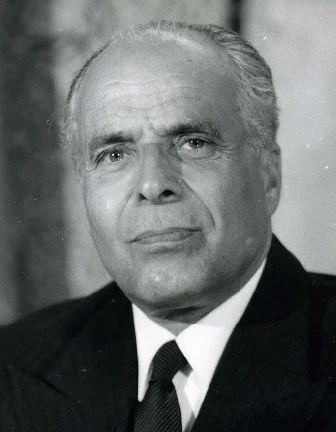
Habib Bourguiba was born in Tunisia, destined to become the country’s first president after independence. His early life as a journalist shaped his political communication skills.
Bourguiba would lead Tunisia’s independence movement against French colonial rule. His presidency established Tunisia as a progressive Arab nation with strong educational and women’s rights policies.
1920 – P.D. James Born

P.D. James entered the world in Oxford, England, beginning a life that would revolutionize detective fiction. Her background would later inform her sophisticated approach to crime writing.
James created the beloved detective Adam Dalgliesh, elevating the mystery genre to literary heights. Her psychological depth and elegant prose established her as one of Britain’s greatest crime writers.
1926 – Tony Bennett Born

Tony Bennett was born in Queens, New York, destined to become one of America’s greatest interpreters of popular song. His early exposure to music shaped his distinctive vocal style.
Bennett’s career spanned seven decades, introducing classic American songs to new generations. His collaborations with contemporary artists demonstrated the timeless appeal of traditional popular music.
1940 – Martin Sheen Born
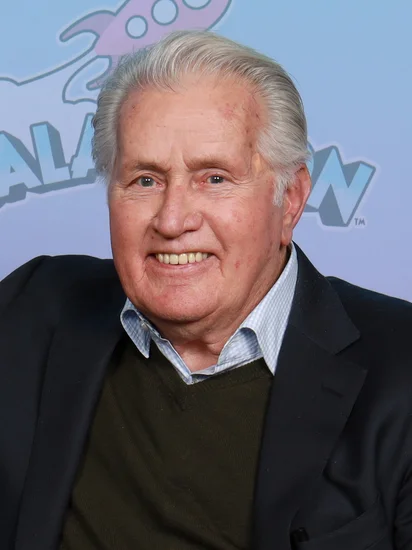
Martin Sheen was born in Dayton, Ohio, beginning a journey that would make him one of America’s most respected actors. His early interest in theater guided his career path.
Sheen’s performances in films like “Apocalypse Now” and “The West Wing” established his reputation for dramatic intensity. His social activism paralleled his artistic achievements throughout his career.
1943 – Martha Stewart Born

Martha Stewart was born in Jersey City, New Jersey, destined to transform American lifestyle and entertaining. Her early interest in cooking and homemaking shaped her future empire.
Stewart built a multimedia business empire focused on domestic arts and entertaining. Her brand revolutionized home and garden publishing while establishing lifestyle marketing as a major industry.
1963 – James Hetfield Born

James Hetfield was born in Downey, California, destined to become heavy metal’s most influential frontman. His early exposure to classical music and rock shaped his musical development.
Hetfield co-founded Metallica, becoming one of the most successful metal bands in history. His aggressive vocal style and rhythm guitar playing defined heavy metal for an entire generation.
1977 – Tom Brady Born

Tom Brady was born in San Mateo, California, beginning a journey to become football’s greatest quarterback. His early athletic abilities in multiple sports demonstrated his competitive nature.
Brady’s NFL career produced seven Super Bowl championships and numerous records. His longevity and clutch performances established him as the greatest quarterback in professional football history.
Notable Deaths on August 3
1924 – Joseph Conrad Dies
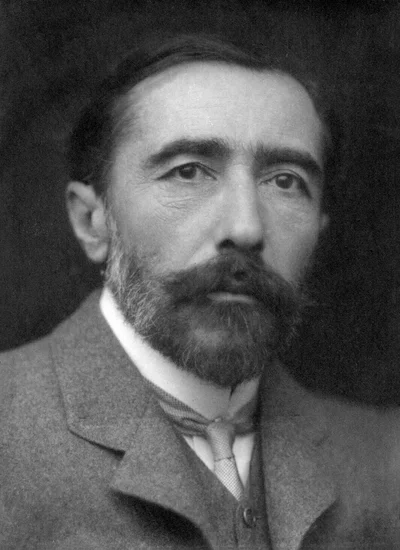
Joseph Conrad, the British novelist born in Poland, passed away at age 66. His maritime experiences provided material for groundbreaking works of literature.
Conrad’s novels like “Heart of Darkness” and “Lord Jim” explored themes of imperialism and moral ambiguity. His psychological depth and narrative techniques influenced generations of writers worldwide.
1954 – Colette Dies
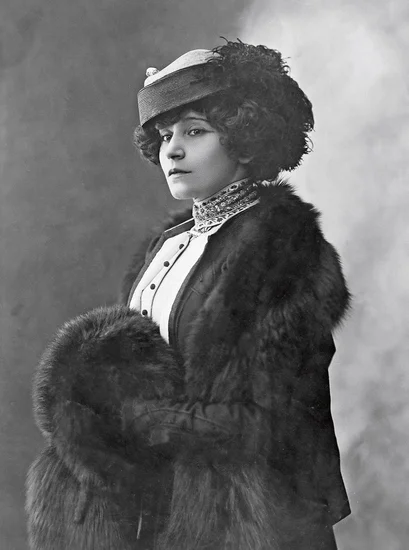
Colette, the celebrated French novelist and journalist, died at age 81 in Paris. Her bold writing about female sexuality and independence challenged conventional social norms.
Colette’s novels explored women’s experiences with unprecedented frankness and literary skill. Her works like “Gigi” and “The Vagabond” established her as France’s most important female writer.
1964 – Flannery O’Connor Dies
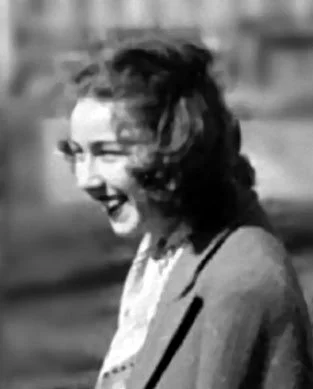
Flannery O’Connor, the American short story writer and novelist, died at age 39 from lupus. Her Southern Gothic fiction explored themes of faith, violence, and redemption.
O’Connor’s stories like “A Good Man Is Hard to Find” combined dark humor with profound spiritual insights. Her unique voice and unflinching examination of human nature influenced countless writers.
1977 – Makarios III Dies
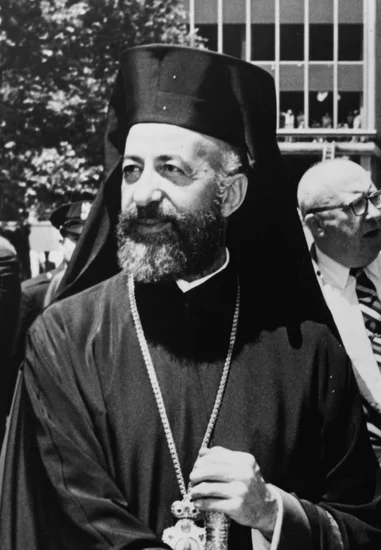
Makarios III, the first President of Cyprus and Orthodox Archbishop, died at age 63. His dual role as religious and political leader shaped Cyprus’s modern history.
Makarios led Cyprus to independence from British rule and navigated complex relationships with Greece and Turkey. His leadership during the island’s turbulent early years established Cyprus as an independent nation.
2008 – Aleksandr Solzhenitsyn Dies
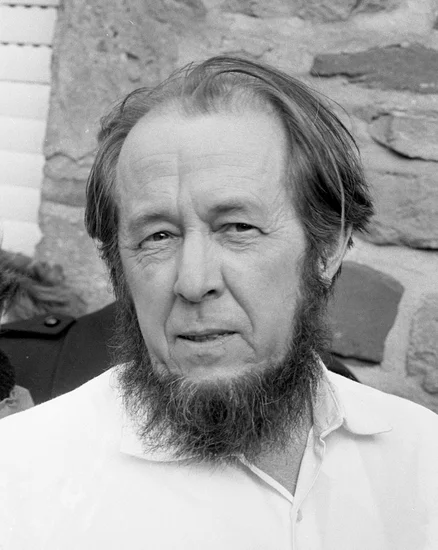
Aleksandr Solzhenitsyn, the Nobel Prize-winning Russian novelist and historian, died at age 89. His works exposed the brutality of the Soviet gulag system to the world.
Solzhenitsyn’s “The Gulag Archipelago” documented Stalin’s terror with unflinching detail and literary power. His courage in exposing Soviet crimes earned him exile and international recognition as a champion of truth.
Holidays and Observances on August 3
Independence Day in Niger
Niger celebrates its independence from France achieved on August 3, 1960. The West African nation commemorates its liberation from colonial rule with national ceremonies and cultural events.
The independence celebration includes official government ceremonies and traditional cultural performances. Citizens gather in the capital Niamey and throughout the country to honor their national sovereignty and cultural heritage.
Armed Forces Day in Equatorial Guinea
Equatorial Guinea honors its military forces on August 3 with parades and ceremonies. The observance recognizes the armed forces’ role in national defense and sovereignty.
Military personnel participate in ceremonial displays while citizens express gratitude for their service. The day emphasizes national unity and the importance of defense in maintaining independence.
Anniversary of the Killing of Pidjiguiti in Guinea-Bissau
Guinea-Bissau commemorates the 1959 killing of striking workers at the Pidjiguiti dock. The memorial honors those who died in the struggle for independence from Portuguese colonial rule.
The anniversary serves as a reminder of the sacrifices made during the independence movement. Educational programs and ceremonies ensure younger generations understand their nation’s liberation history.
